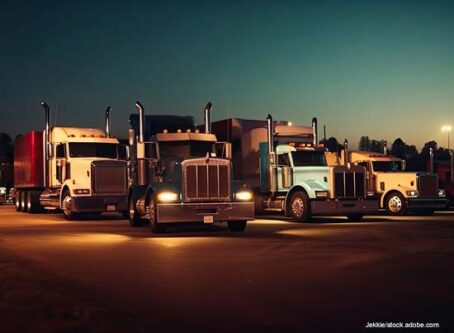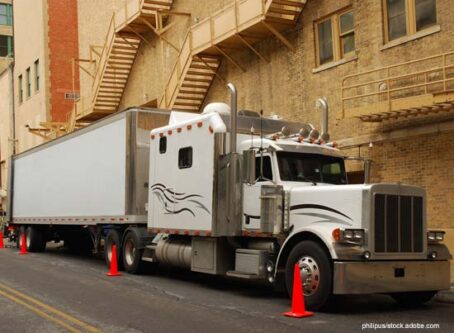OOIDA: Truckers need answers regarding California’s AB5
Following the U.S. Supreme Court’s decision not to hear a case against California’s Assembly Bill 5, truck drivers in the state face uncertainty about whether or not they are complying with the law.
In an attempt to gain some clarity for truckers, the Owner-Operator Independent Drivers Association wrote a letter to California Gov. Gavin Newsom on Thursday, July 14. The letter provides Newsom some of OOIDA’s reasoning for opposing the law and seeks answers to several questions regarding how the law will be enforced.
Until those answers come, OOIDA requested that the governor delay enforcement of AB5 in trucking.
“We are asking you to announce a delay in enforcement of AB5 in the trucking industry until the state fully considers how the law will affect small-business truckers and provides remedies to ensure independent contractors are not forced to be reclassified as employees,” OOIDA President Todd Spencer wrote.
AB5, which was passed by the California Legislature in 2019, is a worker classification law that makes it extremely difficult for someone to be considered an independent contractor. The California Trucking Association sued over the law, and a preliminary injunction was put in place while the case was being decided. Now that the Supreme Court rejected its petition to hear the case, motor carriers and truck drivers in California are scrambling to get questions answered.
OOIDA asked Gov. Newsom to answer the following questions.
- Will AB5 have any impact on owner-operators with their own operating authority (i.e., owner-operators with their own U.S. DOT number)? For the record, we would argue owner-operators with their own authority are outside the reach of AB5.
- Will AB5 effectively prohibit all traditional lease agreements between owner-operators and motor carriers?
- Does the state believe owner-operators leased to a carrier would be able to satisfy the business-to-business provision so they are governed by the Borello standard?
- Will AB5 apply to owner-operators who are residents of California but are leased to a motor carrier domiciled in another state?
- Will AB5 apply to an owner-operator who is a resident of another state but who is leased to a carrier domiciled in California?
- Will AB5 apply to drivers that only pass through California but do not begin or end a trip there?
- Some owner-operators are leased to a motor carrier but own more than one truck. The owner-operator (i.e., truck owner) might hire their own employees to operate their other truck and pay applicable payroll taxes, employee benefits, etc. In essence, a motor carrier has a lease agreement with an owner-operator (truck owner), but the owner-operator supplies their own employees to drive the truck. Will AB5 allow or prohibit an operation like this?
- Does (or will) California have a website or phone number available for anyone potentially impacted by the new law to ask questions and receive timely answers?
OOIDA, which wrote an amicus brief in support of the California Trucking Association’s case, told the governor that AB5’s all-or-nothing approach isn’t practical.
“One of the biggest failures of AB5, with both the ABC Test and the law’s business-to-business exemption, is that it is an all-or-nothing approach,” Spencer wrote. “If an individual fails to satisfy even one criteria, they are automatically an employee. The fact an individual performs work that is in the usual course of the hiring entity’s work may have some bearing over whether the individual is an employee or independent contractor, but there is no way it can be the determining factor. We hope you will provide accommodations to allow for owner-operators to continue working as independent contractors, as the state already has for independent contractors in other industries.” LL









